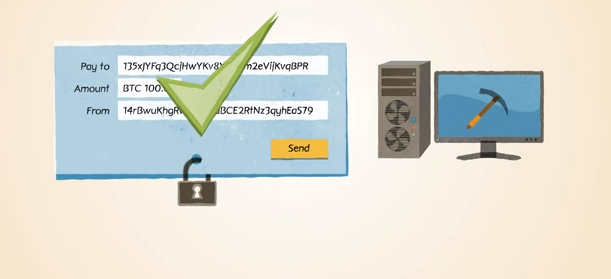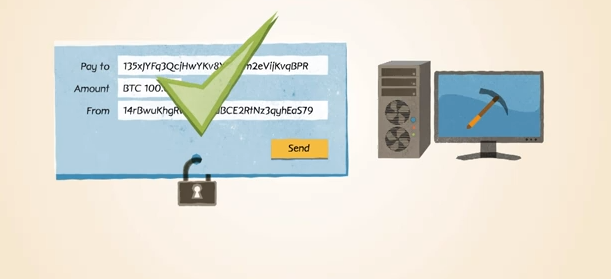 Investing in and using Bitcoins, a digital currency that can be transferred directly from person to person through the Internet, is a particularly bad idea because it is unstable and is being used as a speculative vehicle. That’s the consensus answer on question-and-answer site Quora.
Investing in and using Bitcoins, a digital currency that can be transferred directly from person to person through the Internet, is a particularly bad idea because it is unstable and is being used as a speculative vehicle. That’s the consensus answer on question-and-answer site Quora.
The currency is designed to remove the middle man in transactions. That can be a transaction provider like PayPal or a bank when someone makes a purchase with a credit or debit card. When someone makes a transaction, the Bitcoin is automatically transferred to the recipient through an encrypted transaction that ensures Bitcoins can’t be hacked or created artificially. New Bitcoins are added to the market through the “Bitcoin Mining” — a process where individuals run servers that handle Bitcoin transactions and get paid in Bitcoins for doing so.
The number of Bitcoins available to users is algorithmically limited — meaning the number of new Bitcoins introduced into the economy decreases over time and reaches a cap of somewhere around 21 million. That means that, similar to days on the stock market where there is low trading volume, smaller moves in the market are able to cause greater swings in the value of the Bitcoin. An 8 percent swing in the value of the Bitcoin throughout the day is pretty typical.
“All of that volatility comes on an average Bitcoin volume of something like 20,000 per day. If I put in an order for $15,000 worth of Bitcoin right now, I’m pretty sure I could move the market between 5 percent and 10 percent to the upside,” Internet economist Adam Cohen said in a later post on Hacker News. “It’s probably even worse to the downside. Call me a skeptic, but with that kind of easy price manipulation, I’m not quite ready to denominate my paycheck in Bitcoins yet.”
There’s been incredible inflation in the value of the Bitcoin, which reached a price of somewhere around $28 before experiencing a “black Friday.” The Bitcoin then lost around a third of its value but has since climbed back up to around $22 per Bitcoin. The 8 percent swing in the value of the Bitcoin is already nearly an order of magnitude more volatile than the typical stock market, which experiences daily shifts of around 1 percent on a more active day and less so on typical days. Foreign exchange markets also experience a smaller amount of volatility.
Cohen said the process of adding new Bitcoins to the market was a way to enrich early adopters and promote usage of the currency, but that puts new adopters and users of the currency at a disadvantage. There are ways to exchange real-world dollars for Bitcoins at the current market price. As the price of the Bitcoin goes up over time, it’s less likely people will want to use their Bitcoins in transactions because they will become too valuable and they will just want to use them as an investment to generate a return.
The whole Bitcoin ecosystem is also inevitably linked to computer systems. That means that any failure in any part of the Bitcoin creation and transaction process could create a crisis of faith in the currency and trigger a “run on the bank” of sorts, where Bitcoin owners try to convert their Bitcoins into real-world dollars before the value decreases any further, Cohen said. And there have been plenty of instances where even some of the best online services like Amazon’s cloud computing have failed for significant periods of time.
VentureBeat's mission is to be a digital town square for technical decision-makers to gain knowledge about transformative enterprise technology and transact. Learn More

